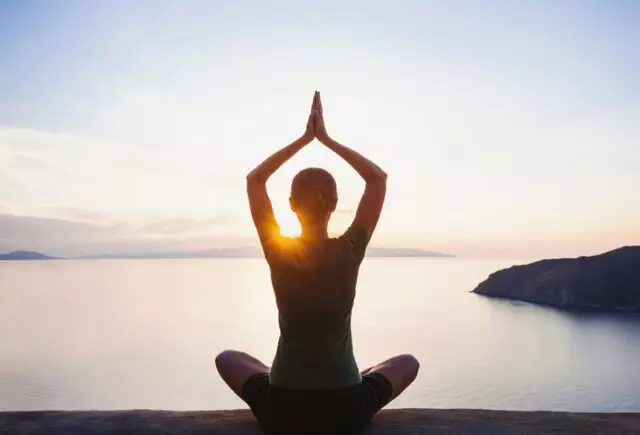Whether it’s work, social commitments, or the ever-present pull of technology, our minds rarely catch a break. Many people live totally in their heads, dragged this way and that way by whatever thought patterns arise. While it isn’t technically a medical classification, research shows that “thinking too much” is a common problem unlimited by culture or specific diagnoses.
For those in recovery, unwelcome thoughts can be particularly persistent. Issues such as cravings, comorbidities, and unresolved trauma can all cause intrusive thoughts. This is why mindfulness practices like yoga and meditation can be incredibly supportive for your recovery journey.
At Maui Recovery, we are huge proponents of such practices, and Hawaii’s beautiful natural surroundings serve as the ideal setting for them.
How Your Thoughts Affect Your Body
“The mind is a wonderful servant but a terrible master.”—Robin Sharma
There’s a persistent tendency (thanks in part to the philosopher Descartes) to split the mind and body into two separate entities. This is called “mind-body dualism.” However, current scientific and medical literature shows this to be a complete misnomer. To view health accurately we must approach it holistically—that means understanding the mind-body connection.
This relationship signifies how your thoughts, feelings, and attitudes can influence your biological functioning, as well as how your physical actions affect your mental state.
Most people consider the mind to be a product of the brain. However, the brain and body are connected via millions of neural pathways comprised of neurotransmitters, hormones, and chemicals. What’s more, the gut and heart also contain neurons and are in constant communication with the brain. Research even found that the heart sends messages that the brain doesn’t just understand, but has to obey. This places a new meaning on the words, “lead with your heart.”
When you understand this connection; begin to view consciousness as a product of your entire biochemistry; when you learn to feel it, you can leverage it to great effect. CBT and mindfulness are partly based on this principle.
By implementing practices like meditation and yoga, you expand your awareness, cultivating positive mental states that support your body’s physical health, and vice versa. All things considered, this holistic approach allows you to tap into a deeper sense of self; one that can help you break the cycle of addiction.
What is Meditation and How Do You Practice it?

Today, we have access to dozens of theories, disciplines, and discourses on this age-old technique. But, while you’re welcome to explore these should you want to, the basics of meditation can be reduced to simple terms. In the words of spiritual teacher Ram Dass: “Follow the breath.”
Meditation is presence. It is being still and letting your thoughts come and go like clouds across the sky. It means not judging or identifying with whatever arises within you, including the shame or frustration that might be felt when thoughts appear. Just keep bringing it back to a focal point that fosters a sense of stillness.
Of course, despite Ram Dass’ words, this doesn’t have to be the breath, and many people find that method too difficult at first. You can use alternative focal points, like a mantra, the sounds of nature, your body, or even a guided meditation—it really doesn’t matter. Whatever works for you is fine.
It’s key to remember that meditation isn’t about silencing thoughts—thinking is completely normal even for advanced meditators—but changing your attitude toward them. Remember, there’s no test, competition, or trophy for the best meditator! This is all about you and your right to healing and inner tranquility.
How Meditation Can Aid Recovery
Meditation may be one of the best things you can do for your wellbeing. What’s more, it’s totally free and you can practice it anywhere at any time.
Many people are initially put off by keeping up the practice due to its perceived difficulty. But think about anything you’ve become proficient in (like learning a musical instrument or your major at college). You didn’t ace it at first; getting to the level you’re at now took practice and discipline. Treat meditation like you would any other skill, and you will eventually reap amazing rewards.
Today, the myriad benefits of meditation have been widely studied and confirmed. These include (but aren’t limited to) a greater sense of self-awareness, improved social connections, more creativity, increased patience and emotional flexibility, a longer attention span, as well as improved memory and brain plasticity.
While the above perks are beneficial for everyone, they are especially useful for those on the path to sobriety. Having seen these positive effects firsthand, we incorporate a range of mindfulness-based therapies (MBSR) at our center. Ultimately, meditation can help you perceive the root of your cravings, enable you to be more open with your support network, and rekindle a sense of wholeness.
What is Yoga?

When hearing the word “yoga,” people may think of fat-burning postures, snappy, YouTube videos, or LuLuLemon apparel. However, the origins of this practice are ancient. Originating over 5000 years ago in India, yoga is a holistic discipline aimed at uniting mind, body, and spirit. The term itself comes from the Sanskrit word “Yuj,” denoting the union of individual and universal consciousness.
On your addiction recovery journey, yoga can serve as a powerful ally. The postures or “asanas,” can enhance strength and flexibility, while techniques like controlled breathing and meditation promote mindfulness and tranquility. By incorporating yoga into your recovery, you’re embracing a practice designed to balance physical health, mental resilience, and spiritual growth.
The Benefits of Yoga
Regularly practicing yoga provides many potential benefits. Due to issues such as flexibility, health issues, or difficulty sticking to a routine, some might be unwilling to try it out. However, the great thing about this practice is that it is suitable for everyone’s skill level. You don’t have to be able to do handstands or endure intense Vinyasa sessions if you don’t want to. Almost all yogis understand this and will instruct you according to what you can manage.
Physical Health
The most obvious impact of yoga is that it improves strength, flexibility, and balance. Whether it’s the continuous flow of Vinyasa, the slow movement of Hatha, or the gentle floor-holds of Yin, all help to rebuild your body after the toll of addiction. Among its many physical benefits, yoga can boost your overall vitality and energy levels, as well as promote better sleep.
Mental Clarity
Yoga isn’t just stretching; mindfulness and meditation are core to the practice. By using controlled breathing (pranayama), you can foster a calm and focused mind, relieve chronic stress patterns, and promote mental clarity. This provides a much-needed sense of calm and inner peace; one that former addiction may have deprived you of.
Emotional Release

Because this practice encourages self-awareness, you’re better able to tune into your emotions. This can help with integration: what you may have talked about in a therapy session may become more clear to you during yoga. Yoga can also help you release trauma you might not have known you were holding on to. This enhanced emotional intelligence can aid in understanding and managing triggers, reducing the risk of relapse. Keeping up a regular practice also supports the development of patience and resilience—essential qualities in the recovery journey.
Spiritual Union
Rooted in ancient Indian philosophies, yoga goes beyond physical exercise, aiming to harmonize every aspect of your being. This spiritual component can provide a source of comfort, inner strength, and self-acceptance during recovery. Remember, you don’t have to adhere to a particular belief system but rather explore and connect with your deeper self.
Helps Foster Community
This can often be overlooked when discussing yoga, but participating in group yoga classes offers tangible social benefits. We’ve seen the social value of this practice ourselves when clients take part in group yoga sessions at our center. Yoga can strengthen your sense of belonging and help you build supportive and understanding relationships. Such positive social connections are essential for a lasting recovery.
Maui Recovery Provides the Perfect Setting for Sobriety

Few things go together like mindfulness and nature—a truth the Pacific Islanders have long since known. It can be easy for us to forget, living in towns and cities, that we are not apart from the natural world, but inseparable from it. When we walk through a forest, gaze at a mountain, or listen to the lapping waves of the Pacific, we feel a sense of inner-peace few things can equal.
We’ve seen firsthand how nature-based mindfulness has proven highly effective for our clients—and research confirms it. This study on MBSR in natural settings found that:
“… participants in the natural outdoor environment showed sustained improvements even after one month from completion of the intervention.”
Being based in Hawaii—one of the most beautiful natural environments in the world—we are uniquely placed to offer you an ideal setting to practice mindfulness approaches like meditation and yoga. These surroundings can enhance your mind-body connection; an awareness we view as vital to healing, growth, and recovery.
Our dedicated team understands the importance of balancing evidence-based treatments with your need to explore new and exciting healing modalities. We also seek to nurture your sense of community by enabling you to practice yoga and meditation together, strengthening bonds, and creating shared healing experiences.
If you’d like to talk to us about yoga and meditation practices or find out more about our recovery programs, please contact us.









